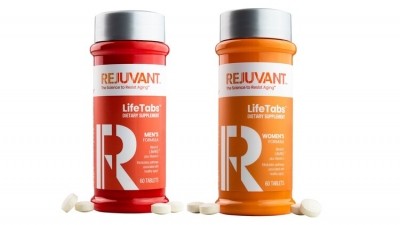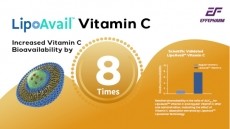Formula for success? NZ channels USD$750,000 for goat milk healthy ageing research to boost exports

The country’s High-Value Nutrition (HVN) Ko Ngā Kai Whai Painga National Science Challenge has awarded a grant worth NZD$1,410,978 (USD$745,000) to the Riddet Institute of Massey University – one of the top three biggest grants awarded to date.
Professor of nutritional sciences at the institute, Warren McNabb, will be working with researchers from the Department of Human Nutrition from the University of Otago and industry partner NIG Nutritionals Limited (NIG). NIG is also co-funding the research.
The three-year study, spanning 2022 to 2024, aims to identify the impact of adding whole milk powders to older adult diets on digestive comfort, nutritional status and skeletal muscle function.
Subjects will be classified into four groups – the control group with normal diets, a group consuming reconstituted goat milk provided by NIG, a group consuming reconstituted bovine milk provided by Miraka, and a group consuming reconstituted sheep milk provided by Spring Sheep Milk Co.
Director for the HVN National Science Challenge, Joanne Todd, said that consumers in New Zealand’s biggest export market, China, have been baying for research evidence and data.
“The government has recognised that B2B, B2C and general audience products need evidence, not anecdotal evidence, to achieve a greater good for the economy. There are opportunities to extract more value and returns if we present more evidence.
“For instance, we can export more products and attract more global consumers, especially from APAC. Hence, there’s great support for science through the system to support the F&B industry,” said Todd.
HVN is one of the 11 National Science Challenges in the country and has NZD$45m (USD$33m) worth of funding to be disbursed from 2019 to 2024. Hosted by the Liggins Institute of the University of Auckland and funded by the Ministry of Business, Innovation and Employment, the challenge is a mission-led programme of innovative research into the health attributes of New Zealand-produced foods for major export markets.
Study details
Currently, the team has submitted their ethics brief, which will be followed by subject recruitment from May to December 2022 in batches. The study continues to be conducted as the subjects get recruited.
Lab work will begin around January 2023 for eight months, followed by data analysis from August 2023. The team will analyse the subjects’ blood glucose, triglycerides, amino acid levels, gut microbiome, body composition and muscle strength.
The team aims to recruit 240 females aged 55 to 75 who fulfil the inclusion criteria, such as hitting a certain BMI range. Each of the four treatment groups will have 30 to 60 individuals, depending on recruitment.
The three milk groups will consume milk at breakfast and lunch, each time amounting to 250 millilitres, and answer scientific questionnaires over 14 days.
The study excludes males, heavy drinkers, Type 1 and Type 2 diabetes sufferers and heavy dairy consumers (those who consume more than 500 millilitres of dairy products like milk, yoghurt and cheese).
Males were excluded to maximise the impact of the study, said Professor McNabb. Past research have shown that women had the more significant discrepancy between protein supply and demand.
“Women are more protein-deficient. You need more proteins at that age, but they need to be easily digested. As you age, the small intestines regress and aren’t as effective in the digestion and absorption of amino acids. However, women in that age range eat less, making them protein-deficient. If you observe various foods, milk is rich in nutrients due to the high bioavailability of amino acids,” he said.
Additionally, the different types of milk take up different times to break down and curdle in the stomach at various consistencies (bovine produces hard curds, goat produces medium curds, and sheep produces soft curds). An accumulation of these factors will affect the upper and lower gastrointestinal tracts and may create issues such as acid reflux and gas.
“In the end, it’s about people, and I hope the trial can bring positive outcomes for people to lead better lives,” said the professor.
Milking the research
From the business perspective, the programme manager for R&D projects of NIG Nutritionals, Jo Finer, said the research outcomes would be applied to its colostrum-based formula.
Echoing Todd, Finer said there is a great uptake in China for goat’s milk and believes that the research can lower the discomfort faced by consumers.
“It will also give us the competitive edge because of consumer demand for information and goat milk, alongside the frequency of more lactose-intolerance among people. We have already started work on developing and manufacturing the formulas based on their hypothesis and early indications.
“With the evidence on digestive comfort, particularly for South East Asia and Asia in general, we expect it can help us more than double our revenue and assist in marketing efforts and the industry as a whole. Most importantly, we want to show you can get better milk from livestock in the green environments of New Zealand,” said Finer.





















